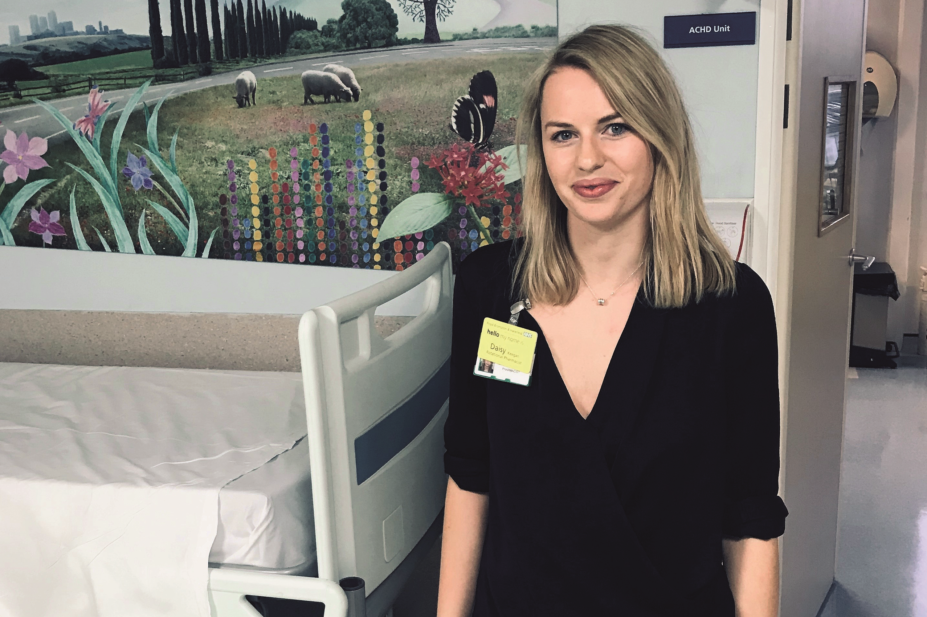
At the time of writing this post, it had been nearly 18 months since I enrolled in the RPS Foundation Programme, and I was close to completing my Foundation Stage 1.
I began the foundation programme at the same time as my postgraduate diploma in pharmacy practice (PGDipGPP) at UCL. From the beginning it has provided me with a comprehensive template, known as the Foundation Pharmacy Framework, that I could follow to support my development and ensured I built my portfolio along the way.
The framework encompasses core skills, knowledge and behaviours essential to all pharmacists and across all sectors. It is primarily divided into four clusters: patient and pharmaceutical care; professional practice; personal practice, and management and organisation competencies. The framework has enabled me to map my development over time and has proved a useful tool to myself, and my RPS tutor, in identifying gaps in my knowledge and skill set that I can work on over the next coming months. My current objectives are based around Cluster 4: management and organisation competencies, specifically: budget setting, reimbursement and staff development. As a result, I have purposely become more involved in understanding my hospital’s ‘Healthcare at Home’ scheme for high-cost medications and I have presented training presentations to the trust’s new employees and our preregistration pharmacists.
Tutor and record of in-training assessments
The foundation programme requires you to appoint a tutor for the duration of Foundation Stage 1 and 2 who is there to review, support and feedback on your progress. This is demonstrated formally in the record of in-training assessments (RITAs) and, where needed, supervises workplace based assessments (WPBAs). I have found that having different specialist pharmacists supervise my WPBAs has provided a deeper insight into how to effectively deliver a consultation and manage a ward.
The purpose of the RITAs are to discuss my achievements and feedback from the previous months and assess whether my objectives set at the last RITA have been met; to review the progress of my portfolio and any WPBAs I have completed along with their feedback and finally to develop a plan for the coming months with regards to my current progress and the foundation pharmacy framework. I find these sessions invaluable in helping me organise and evaluate my progress, planning for future development and gaining insights and advice from senior pharmacists who have previously completed the RPS Foundation Programme.
WPBAs and portfolio
Workplace based assessments are divided primarily into five areas: consultation skills assessments (CSA); pharmaceutical care assessments (PCA), direct observation of practical skills (DOPS), case based discussions (CBD) and peer assessments.
These assessments enable me to document how I apply my skills and knowledge in a practical way (CSA, PCA and DOPS) and discuss how I managed complex cases (CBD) as well as receiving feedback on these assessments and my personal practice (peer assessment). Initially, I found these assessments daunting as a senior pharmacist is required to shadow you; however, over time I have begun to see their true worth in demonstrating my continued development as a pharmacist and highlighting areas for improvement.
It is important that you also map your completed WPBAs to the framework to exhibit your progress and the learning outcomes that you have achieved. My top tip is to map your WBAs and portfolio evidence to the framework as you go along to save you from the daunting task of doing them all at once and to immediately highlight areas for future focus.
I am about to complete my Foundation Stage 1 following a portfolio review with my tutor and move on to Foundation Stage 2. This process has truly benefited me as a newly qualified pharmacist and the care I deliver to my patients; reinforcing my university knowledge and how I apply this practically to the individual patient. It has also provided structured support in the initial months after registration, where I was slightly overwhelmed with my professional responsibility and wondering how I could continue to remain knowledgeable and competent. I continually receive constructive feedback on my professional practice and, through developing my portfolio, I am able to showcase my capabilities as a pharmacist going forward.
For more information about the RPS Foundation Programme visit: https://www.rpharms.com/professional-development/foundation-programme
About the author:
Daisy Keegan is a rotational pharmacist at Royal Brompton and Harefield NHS Foundation Trust.


